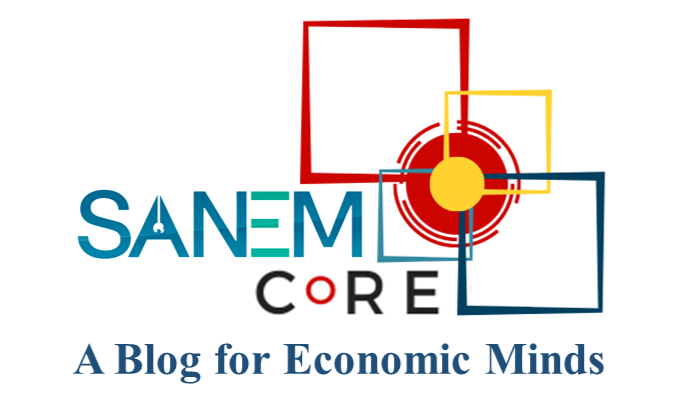The national budget for the next fiscal year will be the third since the start of the Covid-19 crisis in March 2020. Can we expect it to address the current realities, contexts and challenges of Bangladesh?
The economy is on the path to recovery from the unprecedented economic and social crises induced by Covid-19. Several international and domestic factors, however, constrain the recovery process. People’s livelihoods were severely affected during Covid, and are yet to get back on track. Also, rising inflationary pressure in recent months is adding to people’s woes.
To help marginalised people, the government should prioritise economic recovery, job creation and inflation control in the next fiscal year’s budget. The ongoing Russia-Ukraine war and the persistent economic stress of Covid have disrupted global supply chains and driven up commodity prices.
The pressure of the current price hike is beyond the endurance level of the low-income people. Some are even curtailing their necessities, especially food. Though, as per government estimation, the food inflation rate is around six percent, according to recent estimates by SANEM, marginalised people have been facing double this rate while buying foodstuff. The official estimates of the food inflation rate depend on the food basket specified in the 2005 survey, but the food habits of people both in cities and villages have changed a lot in the last 17 years. These changes in food habits and poor people’s typical consumption baskets are not considered in the official estimates. This suggests that the actual situation is worse than what is officially stated.
In recent times, the prices of products in the international market have increased; so have shipping fares. However, the question is whether prices are rising at a higher rate in Bangladesh than in the international market. There is a lack of surveillance in this regard. Reliable data on the local production and the amount of import necessary is vital for maintaining the balance between supply and demand. Lack of information and supply-demand mismatch push up prices of goods. Some traders also take advantage of asymmetric information to bid for higher prices. Regular market supervision is needed to avoid such a situation.
The unpredictability of the geopolitical environment does not help the country’s recovery process, either. In such a situation, we must keep a year-round eye on the international market. To monitor the international market, a permanent system must be established. This would aid in the formulation of better and more effective policies.
During the pandemic, severe flaws in social safety net programmes surfaced. There are concerns that an important portion of the support allocated to the SSN does not reach the poor due to identification problems. As a result, targeted groups continue to suffer. While local government authorities and officials compile beneficiary lists, there is no system in place to ensure accountability and transparency throughout the process. Therefore, substantial coordination between ministries is required. In addition, all safety net programmes must be consolidated onto a single platform. While the allocation for SSN programmes should be raised substantially, there is also a need to ensure coordination, accountability, and transparency in the overall process of allocation, distribution, and management of the programmes.
The government’s initiative to sell products at a lower cost by providing TCB “family cards” to 10 million families is commendable. However, the coverage must be expanded, as many low- and middle-income families, in addition to poorer families, are still unable to take advantage of this benefit. Along with TCB trucks, sales centres for beneficiaries could be set up across the country.
Most micro and small firms, which play an important part in the economy’s supply chain, are still struggling. The resulting supply chain disruption will continue to obstruct economic recovery at the intended pace. As the informal sector employs more than 85 percent of the workforce, a substantial portion of which is made up of micro and small companies, if these businesses fail to recover, the overall economy will not revive, leaving many people to keep struggling in the labour market. Micro and small enterprises have benefited the least from the government’s stimulus packages.
Because the private sector accounts for over 80 percent of total investment in the country, boosting private sector investment is crucial for economic recovery. The indicators for private sector investment are still not encouraging. One of the main goals of the budget for 2022-23 should be to illustrate how to break the cycle of stagnant private sector investment, which has persisted over the past decade.
Bangladesh’s tax effort also continues to fall short of its potential. The tax-GDP ratio is less than nine percent and is one of the lowest in the world. The necessity for a prudent fiscal framework has become much more obvious than in the past. There are also expectations that the government will demonstrate some strong political will in implementing long-awaited vital reforms in the financial sector, the business environment, and in social sectors like health and education.
Sri Lanka’s situation also highlights the necessity of learning lessons on managing foreign debt and implementing development projects. Surely, there is the necessity for infrastructural development and mega projects. But considering their economic viability is extremely crucial. Avoiding unnecessary large-scale projects and conducting proper feasibility studies for development projects are extremely important. The projects which are already undertaken could become burdensome if the expenses eventually become exorbitantly high and it takes more time to implement them. We expect to see reflections of some strong directives in this regard in the upcoming budget.
The article was first published in the Daily Star, on 7 May 2022.
-
Professor, Department of Economics, University of Dhaka, Bangladesh, and Executive Director, South Asian Network on Economic Modeling (SANEM)
View all posts


RECENT COMMENTS